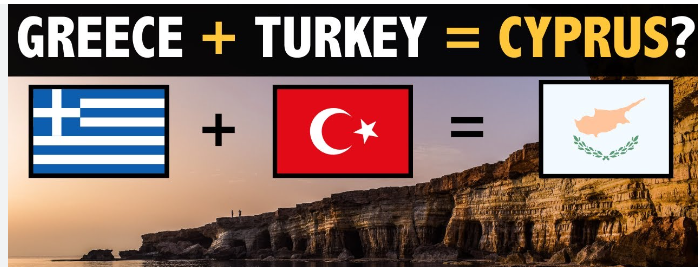President Tayyip Erdogan’s groundbreaking visit to Athens on Thursday was a strong indication of the two countries’ determination to put their relations on a sound footing. It was the first time a declaration of ‘friendship and good neighbourly relations’ and ‘calm seas’ was signed by the leaders of the two countries. The 10-point declaration was a statement of intent by Prime Minister Kyriakos Mitsotakis and Erdogan to underline their commitment to a new chapter in bilateral relations. Fifteen accords were also signed, for cooperation on education, trade, agriculture and tourism.
Although not legally binding, the declaration is a blueprint for the way relations would be conducted from now on, setting out the principles and landmarks of Greek-Turkish discussions that will focus on political dialogue, the positive agenda and confidence-building measures. The two sides were “committed to abstaining from any statement or action that could undermine or diminish the letter and spirit of this declaration or put at risk the maintenance of peace and stability in our region.”
The Greek government also highlighted its commitment to “resolving any disagreement that surfaces in a friendly way, either through direct consultations between the countries or through other mutually chosen means, as envisaged by the United Nations Charter.” On the flight back to Turkey, Erdogan spoke about the “fair share of the natural resources in our area” and the ending of airspace disputes over the Aegean. Tensions in the Eastern Mediterranean “negatively affect Greece and Turkey,” which is why “we should examine what opportunities we could create for the benefit of our countries,” he said. Mitsotakis was on the same wavelength, saying he felt “a historical responsibility” to use this opportunity to “bring the two states side-by-side.”
The positive messaging was welcome, as was the invitation for Mitsotakis to visit Turkey. We have been here before, however….
Good Greece-Turkey relations may also have a positive impact on efforts for a resumption of Cyprus talks, according to government sources in Nicosia. The fact that Erdogan avoided, during the visit, mentioning the two-state solution, which he has been championing for some time now, restricting himself to talking about a settlement based on the realities in Cyprus, was seen as a good sign by the same sources. Mitsotakis acknowledged that he did not see eye to eye with Erdogan on the Cyprus settlement, although reports suggest the Cyprus problem did not feature prominently in the talks. Press reports suggested this had been a condition set by Erdogan ahead of the visit.
Fears have been expressed on the island that Greece may be abandoning Cyprus in its pursuit of good relations with Turkey. This may be a possibility, considering the Cyprus problem has been the main thing souring Greece-Turkey relations over the last 70 years…..
Since then, relations between Greece and Turkey have been marked by hostility and confrontation, the two countries coming close to war on many occasions, especially after the 1974 invasion. The Cyprus problem has maintained the bad relations between them, raising the question whether Greece-Turkey relations could be normalised without a settlement. Most Greek governments have balked at this idea, fearing such a move would be viewed as a betrayal of Cyprus and spark a strong public reaction.
How much longer should Greece allow the Cyprus problem to block improvement of relations with Turkey, considering the normalisation would benefit the country and its economy? When real opportunities for a settlement emerged, in 2004 and 2017, the Greek Cypriots turned them down. Should Greece wait forever for the Greek Cypriots to agree to a settlement and stay on a confrontational path with Turkey indefinitely? Over the years, Greek governments have put their national interest to the side for the sake of Cyprus, offering unconditional support to the Greek Cypriots, even when it was not justified, but this policy may be coming to an end.
Perhaps, President Nikos Christodoulides will grasp the implications of the declaration of friendship and good neighbourly relations for Cyprus, and recognise that Mitsotakis is no longer prepared to allow Nicosia to dictate Greece’s relations with Turkey.
Excerpt only, source link here
Follow our English language YouTube videos @ REAL TURKEY: https://www.youtube.com/channel/UCKpFJB4GFiNkhmpVZQ_d9Rg
And content at Twitter: @AtillaEng
Facebook: Real Turkey Channel: https://www.facebook.com/realturkeychannel/
